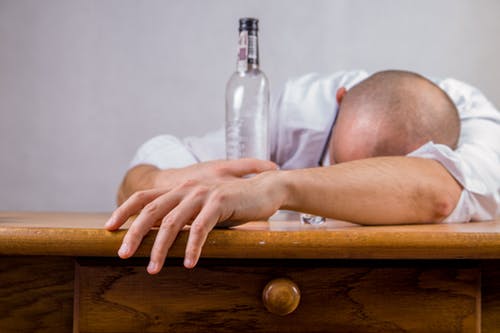By: Geoff Crain
How Are The Two Related?
According the the National Institute of Mental Health, bipolar disorder is a brain disorder that causes unusual shifts in mood, energy, activity levels and the ability to carry out day to day tasks.
If you have bipolar disorder, the shifts in mood and energy levels may lead you to experiment with drugs and alcohol as a means of stabilization. These substances provide temporary relief of the mood swings and allow you to feel normal while your mind is altered.
Unfortunately, this is a band-aid solution. Drugs and alcohol will not treat or fix the the mental disorder. Instead, it will make it worse and increase the mood/energy swings when you are sober. That is when the risk of substance abuse and addiction increases. Since a person only feels normal when they are under the influence they dangerously abuse the substance and become addicted.
It is also possible for people who had no prior history of bipolar disorder to develop it after year of substance abuse. Extended abuse will rewire parts of the brain and severely affect mood and behavior.
Regardless of the situation, if you have been diagnosed with bipolar disorder it is extremely important not to drink in excess or use illicit drugs. Be mindful of the risks and educate yourself on the statistics.
What The Statistics Say
There are many statistics that highlight the link between substance abuse and bipolar disorder. Let’s review some of them now:
-People diagnosed with bipolar disorder are 7x more like to develop substance abuse problems versus people who were not
-58% of people with bipolar disorder had a substance abuse issue at one point in their life
-Alcohol is the most commonly abused substance for those diagnosed with bipolar disorder followed by marijuana, cocaine and opioids
-Alcohol abuse increases the risk of suicidal ideations among people diagnosed with a bipolar disorder
These statistics are troubling and there needs to be more education on the correlation between substance abuse and bipolar disorder.
How Substance Abuse Makes Bipolar Disorder Worse
Substance abuse has negative effects on everyone. Even people who do not have any history of mental illness experience mood swings, exhaustion and anxiety after long periods of drug and alcohol use.
For a person who suffers from bipolar disorder, the side effects are compounded. If not controlled it can lead to the following behavior:
–
More severe mood swings
–
A higher number of poor judgement decisions
–
Longer episodes of emotional instability
–
Increased number of suicide attempts
–
A worse quality of life
–
Severe irritability and hostility
As is the case with any disease, there are decisions that will make the condition worse. For people with bipolar disorder, drugs and alcohol use are some of these decisions. If you have the disease you cannot drink alcohol or use drugs in excess. It will put your health and life at risk.
How Substance Abuse Can Cause Bipolar Disorder
According to the Mayo Clinic there are three risk factors that increase your chance of developing bipolar disorder:
- Having a parent or sibling with the disease
- Periods of high stress
- Drugs or alcohol abuse
Many people think that you can only develop the disease if somebody in your family has it. They are unaware that their substance abuse can be the cause.
Chronic drug and alcohol abuse change the way the brain functions by altering its structure. A synapse is a structure of the brain that allows signals to pass from one nerve to another. These signals are known as neurotransmitters. Dopamine is an example of a neurotransmitter that elicits positive emotions and reward like feelings.
If you use drugs and alcohol for a long period of time the mind will become tolerant to the release of dopamine. The brain will no longer produce the same amount and you will need to use drugs and alcohol to receive normal levels of it.
When you stop using drugs and alcohol your body and mind go into withdrawal. Since the brain does not have normal levels of dopamine you may experience manic episodes or depression. If this is left untreated and substance abuse continues you can develop bipolar disorder.
What Is Dual Diagnosis?
Regardless of whether you developed bipolar disorder as a result of substance abuse or became addicted to drugs and alcohol as a result of a bipolar disorder, the treatment you require will start with a dual diagnosis.
Dual diagnosis (Also known as a co-occuring disorder) is the term used to describe a person who experiences mental illness and a substance use disorder at the same time. It does not matter which disorder was developed first.
According to a survey conducted by the SAMHSA, there are just under 8 million Americans who have co-occurring disorders.
If you feel you are at risk, you need to speak with your physician about the proper treatment options.
Where Can I Get Treatment?
Consult a physician who can diagnose both the mental illness and the substance abuse disorder. They will recommend one, or a combination of the following treatment options:
–
Detox: Supervised withdrawal management
–
Inpatient rehab: 24/7 Care
–
Supportive housing: Sober Homes
–
Psychotherapy: Cognitive Behavioral Therapy
–
Medications
–
Self-help groups: Double Trouble Recovery and Smart Recovery
There is not a one size fits all solution. Every persons disorder is unique and their treatment should be the same. Find the one that fits your needs and start the road to recovery today.


